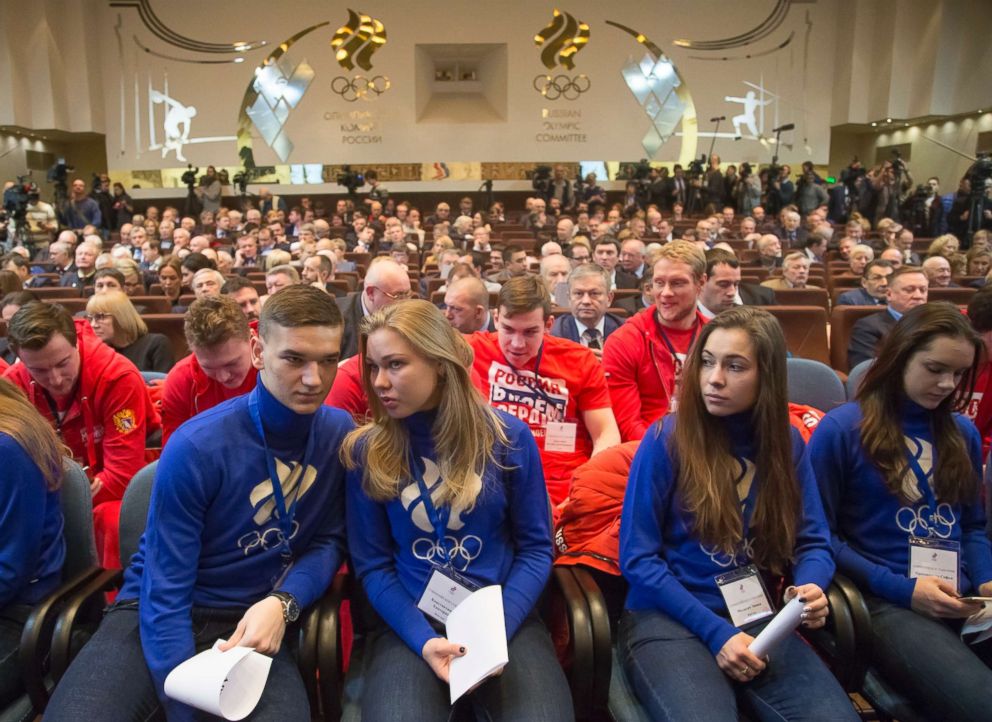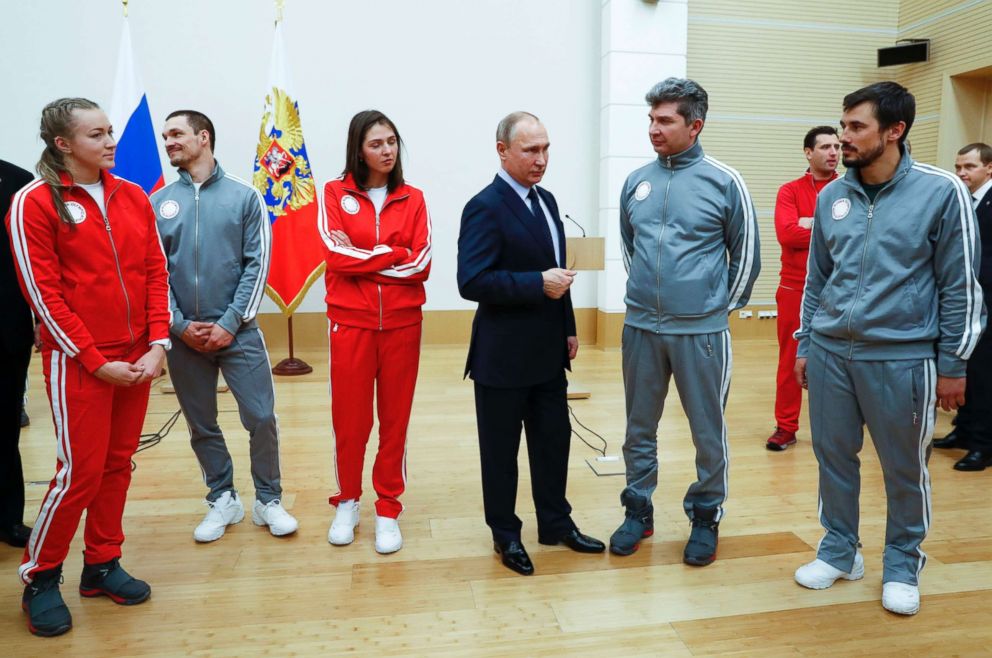Doping bans overturned for 28 Russian athletes ahead of Olympics
The decision is a blow to the IOC, which had banned Russia from the Olympics.
— -- The doping bans of 28 Russian athletes were overturned on Thursday, creating a fresh controversy around the International Olympic Committee's position on Russia's participation at this year's Winter Olympics, scheduled to begin in a week in South Korea.
The Court of Arbitration for Sport in Lausanne, Switzerland, upheld appeals submitted by 28 of 39 Russian athletes against an IOC disciplinary panel's decision to ban them for life over their alleged role in an elaborate doping cover-up by Russia at the Sochi Winter Olympics in 2014.
The CAS found that while there had been doping at the Sochi Olympics, the evidence put forward by the IOC against these 28 individual athletes was "insufficient" to establish they had committed a doping violation.
The athletes whose appeals were upheld will have their results from the Sochi Olympics reinstated and their bans lifted.
"Both CAS panels unanimously found that the evidence put forward by the IOC in relation to this matter did not have the same weight in each individual case,” the CAS said in a summary of its ruling published on its website. "In 28 cases, the evidence collected was found to be insufficient to establish that an anti-doping rule violation (ADRV) was committed by the athletes concerned."
The CAS also reduced the IOC's lifetime ban for the remaining 11 athletes to a ban for just the 2018 Winter Olympics.
The ruling is a blow to the IOC and raises questions whether those Russian athletes who won their appeals should now be allowed to take part in this year's Winter Olympics in Pyeongchang, which start Feb. 9.

The IOC said in a statement that the CAS ruling did not undermine its decision to ban the athletes, saying that the court's decision to uphold it against 11 athletes showed a system for concealing doping at Sochi had existed.
In its statement, the IOC said it regrets very much that the court "did not take this proven existence of the systemic manipulation of the anti-doping system into consideration for the other 28 cases."
"This may have a serious impact on the future fight against doping,” the IOC said, adding that the body was considering its own appeal with the Swiss Federal Tribunal.
The IOC added, "it does not mean that athletes from the group of 28 will be invited" to Pyeongchang.
Russian athletes are competing in the Winter Olympics as neutrals, after the IOC banned Russia from them over systematic doping. The IOC invited 169 Russian athletes to take part after they cleared vetting. They will perform under the status of "Olympic Athletes from Russia" in special uniforms, without the country's flag or anthem.
The Kremlin said that it would now raise the issue of the cleared athletes' participation with the IOC.
"I don't know whether they will have the chance to participate in the Pyeongchang Olympics -- it's a complicated matter,” Dmitry Peskov, the Kremlin’s spokesman, told reporters on his daily briefing call. "We are going to clarify how the current situation can be made up for."
The CAS ruling will also likely be seized on by Russia as proof that the evidence of the doping cover-up scheme that led to its ban from the Olympics was insufficient. Richard McLaren, a Canadian lawyer whose investigation for the World Anti-Doping Agency formed the basis of the Russian bans, as well as the key whistleblower in the scandal, Grigory Rodchenkov, had both given evidence at the CAS appeal hearings.
The CAS ruling said it was not passing any judgement on that question, saying that it was not mandated to say whether there was "an organized scheme" for tampering with doping samples at Sochi.

The IOC banned Russia from the Pyeongchang Winter Olympics after its own commissions broadly confirmed McLaren's findings, that Russian sporting officials had overseen an elaborate years-long scheme to conceal doping by the country's athletes. McLaren's investigation for the World Anti-Doping Agency, based on testimony and documents from whistleblowers, found that Russia's anti-doping laboratory had tampered with samples belonging to hundreds of athletes, sometimes aided by Russia's intelligence services.
The laboratory’s director, Grigory Rodchenkov, has been the key whistleblower at the heart of the scandal, telling investigators he'd overseen the program, providing emails, laboratory records and contemporaneous notes to show senior Russian officials were aware of the program. Other whistleblowers, including the 800-meter runner Yulia Stepanova, have also described systematic doping in Russia national squads.
Russian officials have rejected Rodchenkov's allegations that there was a state-sponsored doping program in Russia, insisting he was acting alone with individual coaches, athletes and officials. Russian President Vladimir Putin has suggested the doping allegations are the product of a plot by U.S. intelligence to pressure Russia.
The IOC has rejected those claims.
A statement from Rodchenkov's lawyers, quoted by the BBC, called the CAS decision a "complete 'get out of jail free card' for most" of the athletes.
"The CAS decision," according to the statement, "only emboldens cheaters, makes it harder for clean athletes to win, and provides yet another ill-gotten gain for the corrupt Russian doping system generally, and Putin specifically."




